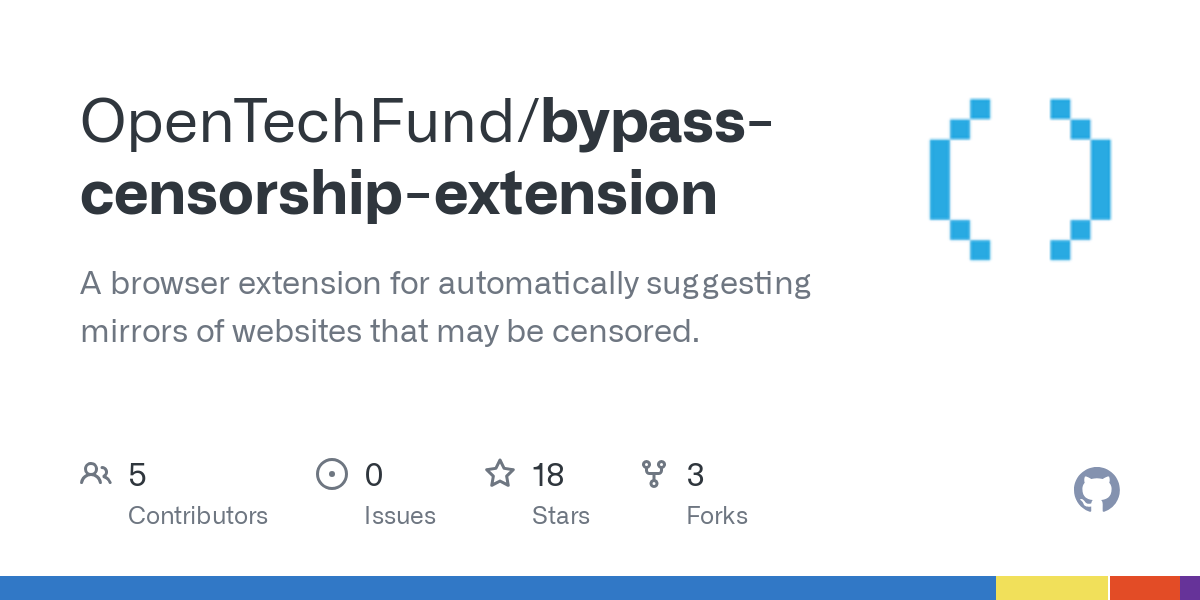Understanding Block Mirrors: A Deep Dive Into Censorship And Bypass Methods

Table of Contents
What are Block Mirrors?
Block mirrors are alternative URLs or servers that replicate the content of a blocked website, providing users with access to information otherwise unavailable. They function as a workaround for censorship, allowing individuals to circumvent restrictions imposed by governments, corporations, or geographical limitations. These mirrors essentially create a duplicate of the original website's content, making it accessible via a different address.
How do block mirrors achieve this redirection? Several technical methods are employed. This often involves utilizing different Domain Name System (DNS) entries, routing traffic through alternative IP addresses, or leveraging the power of Content Delivery Networks (CDNs). Proxy servers also play a significant role, masking the user's IP address and allowing them to access the mirrored content indirectly.
Here are some common methods employed by block mirrors:
- Alternative domain names: A simple yet effective method; the blocked website might be accessible through a different domain name.
- IP address redirection: Instead of using a domain name, users might be directed to a specific IP address hosting the mirrored content.
- CDN (Content Delivery Network) usage: CDNs distribute website content across multiple servers globally, making it more resilient to censorship attempts.
- Proxy servers: Proxy servers act as intermediaries, masking the user's location and accessing the blocked content on their behalf.
Examples of block mirrors can be found across various websites, from news sites facing government restrictions to social media platforms blocked in specific countries. The specific methods used vary depending on the nature of the censorship and the technical capabilities of those creating the mirrors.
Why are Block Mirrors Necessary?
The need for block mirrors arises from various forms of censorship and restrictions on website access. These restrictions often impede freedom of information and expression.
- Government censorship: Many governments actively censor websites containing politically sensitive information, dissenting opinions, or content deemed harmful to national security. These actions restrict citizens' access to diverse perspectives and information.
- Corporate censorship: Corporations may block access to websites that compete with their products or services, or to websites containing negative reviews or criticisms. This limits consumer choice and free speech.
- Geo-restrictions: Content providers often restrict access based on geographical location, preventing users in certain regions from accessing specific streaming services, online games, or other digital content. This creates digital divides and limits cultural exchange.
Here are some specific reasons behind these restrictions:
- Political restrictions: Suppressing dissent and controlling the flow of information.
- Social control: Preventing the spread of ideas deemed undesirable or harmful by authorities.
- Copyright infringement concerns: Protecting intellectual property rights.
- Geo-blocking of streaming services: Maintaining licensing agreements and controlling regional content distribution.
Methods for Finding and Using Block Mirrors
Finding and using block mirrors requires a cautious and informed approach.
- Manual search: Manually searching for block mirrors can be challenging and risky. You'll need to be highly vigilant and check multiple sources to verify the legitimacy of the mirror site.
- Using search engines strategically: Employing advanced search operators like
site:example.com mirrorcan help locate potential mirrors, but careful vetting is crucial to avoid malicious websites. - Utilizing specialized tools: Certain tools and browser extensions claim to help find block mirrors. However, proceed with extreme caution, as many can be unreliable or even malicious, potentially compromising your security.
Here are some strategies, along with important disclaimers:
- Using specific keywords ("site:example.com mirror"): This search technique may uncover alternative links.
- Checking social media for links: Social media platforms can sometimes host links to mirrors but verify their legitimacy carefully.
- Using VPNs (with a clear disclaimer about potential risks): VPNs mask your IP address but don't guarantee access to all blocked content, and some VPN services are less secure than others.
- Using Tor (with a clear disclaimer about potential risks and slow speeds): Tor enhances anonymity but can be slower than typical browsing and may not always bypass all forms of censorship.
Risks and Considerations of Using Block Mirrors
While block mirrors offer access to blocked content, users need to be aware of the potential risks:
- Security risks: Unofficial block mirrors often lack security measures and may harbor malware, phishing scams, or other online threats.
- Legal implications: Accessing blocked content can have legal consequences in some jurisdictions, potentially leading to fines or other penalties.
- Performance issues: Block mirrors may be slower, less stable, or less reliable than the original website due to limited resources or geographical distance.
Here's a breakdown of these risks:
- Malware infections: Downloading malware or having your system compromised through malicious websites.
- Data breaches: Compromising your personal information by using insecure block mirrors.
- Legal consequences in some countries: Facing legal repercussions for circumventing censorship laws.
- Potential for slower loading times: Experiencing slower browsing speeds due to the indirect access method.
Conclusion:
Block mirrors provide a crucial mechanism for accessing blocked content, circumventing censorship and geographical restrictions. However, understanding their functionality and associated risks is paramount. By employing safe and responsible methods and being aware of the potential security and legal implications, users can navigate the complexities of internet censorship. Continue researching and learning about safely using block mirrors to effectively access information while mitigating the inherent risks. Remember that finding reliable block mirrors requires vigilance and caution. Always prioritize your online safety and adhere to relevant laws and regulations in your jurisdiction when considering using block mirrors to access blocked content.

Featured Posts
-
 Is Dasani Bottled Water Available In The Uk
May 15, 2025
Is Dasani Bottled Water Available In The Uk
May 15, 2025 -
 Ovechkin Priblizhaetsya K Rekordu Grettski Prognoz N Kh L
May 15, 2025
Ovechkin Priblizhaetsya K Rekordu Grettski Prognoz N Kh L
May 15, 2025 -
 Berlins Underground Exploring The Possibility Of U Bahn Techno Events
May 15, 2025
Berlins Underground Exploring The Possibility Of U Bahn Techno Events
May 15, 2025 -
 Is Dit Het Begin Van Het Einde Actie Tegen Npo Directeur Frederieke Leeflang
May 15, 2025
Is Dit Het Begin Van Het Einde Actie Tegen Npo Directeur Frederieke Leeflang
May 15, 2025 -
 Predicting The Padres Performance At Their 2025 Home Opener
May 15, 2025
Predicting The Padres Performance At Their 2025 Home Opener
May 15, 2025
Latest Posts
-
 Miami Heat Star Jimmy Butler Suffers Pelvic Contusion Recovery Timeline Unknown
May 16, 2025
Miami Heat Star Jimmy Butler Suffers Pelvic Contusion Recovery Timeline Unknown
May 16, 2025 -
 Draymond Greens Post Game Take On Jimmy Butler A Straightforward Analysis
May 16, 2025
Draymond Greens Post Game Take On Jimmy Butler A Straightforward Analysis
May 16, 2025 -
 Padres 2025 Regular Season Broadcast Schedule Announced
May 16, 2025
Padres 2025 Regular Season Broadcast Schedule Announced
May 16, 2025 -
 Greens Candid Remarks About Butler Following Warriors Kings Matchup
May 16, 2025
Greens Candid Remarks About Butler Following Warriors Kings Matchup
May 16, 2025 -
 The Case For Jimmy Butler How He Differs From Durant And Fills The Warriors Needs
May 16, 2025
The Case For Jimmy Butler How He Differs From Durant And Fills The Warriors Needs
May 16, 2025
